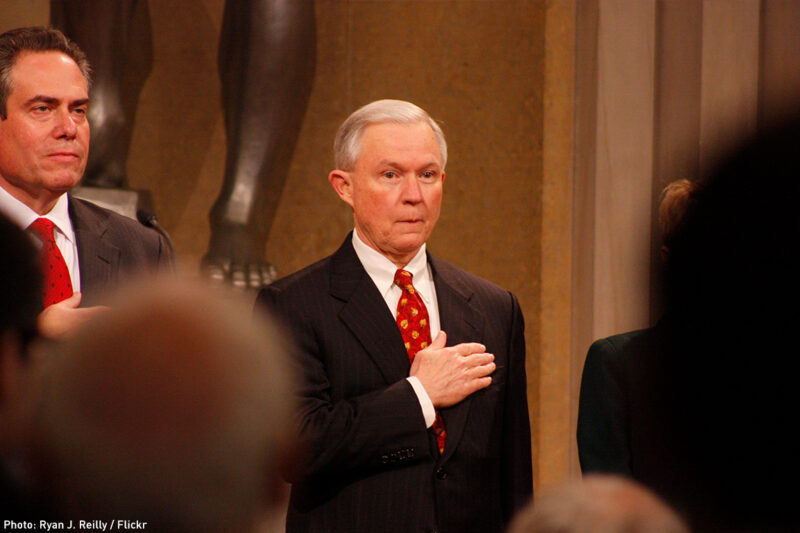Jeff Sessions Is Dismantling the Justice Department’s Community Policing Initiative When We Need It Most


As St. Louis and the rest of the country reacted to the acquittal of the police officer who killed Anthony Lamar Smith last Friday, the Justice Department had its focus on something else. While we expressed at continued state violence and another fatal police shooting of a Black man with no accountability, Attorney General Jeff Sessions did just the opposite.
On Friday, DOJ the end of a community policing program as we know it. The program, which once helped St. Louis County police address and other localities address issues like , is no more. Instead, DOJ will now assist local agencies in “,” aka, Session’s .
The Collaborative Reform Initiative for Technical Assistance, or “” for short, was started in 2011 at the request of local law enforcement. The to law enforcement agencies that were experiencing serious policing failures and reached out to the agency for help. These police departments were plagued by excessive force, biased policing, and failed police-community relations.
As the former head of the COPS office, Ron Davis, , “[collaborative] reform worked because it was driven by local police, elected [and] community leaders who wanted stronger relationships [and] safer cities.” This effort was far from the “” that Sessions uses to describe the previous administration’s oversight of local policing. Police departments and local communities sought out and volunteered for this federal program. And they were right to do so.
The police departments benefiting from collaborative reform were often responsible for fatal police shootings that garnered national attention. We are talking about departments in , where was fatally shot by police; , where Philando Castile met the same fate; and , where Walter Scott was also fatally gunned down by a police offer.
The collaborative reform cities that were waiting on DOJ’s recommendations, like Milwaukee, have been told to . The reports . A draft of the Milwaukee report shows just what is at stake with the loss of these federal resources. The report that “MPD members generally do not understand their roles in community policing.” The report that “MPD’s traffic enforcement practices have a disparate impact on the African-American community” and the department “does not have specific guidelines for conducting use of force investigations.”
For DOJ to now deny critical policing resources to troubled agencies and communities is appalling. Police departments and local officials so they could attempt to “strengthen and build the mutual trust” between law enforcement and communities in the midst of tragedy, often a fatal police shooting. And for Sessions to say he now wants the program to “fight violent crime” is ridiculous. Fatal police shootings can be violent crimes; they just tend to happen without consequence as we saw most recently in St. Louis.
So what can be done with police practices and a justice system that continues to this country? Let’s keep organizing, advocating, and litigating, making sure our voices are heard. Let’s tell our local police departments that we will work with them to ensure constitutional policing practices; that we will hold them accountable even if this Justice Department will not.


